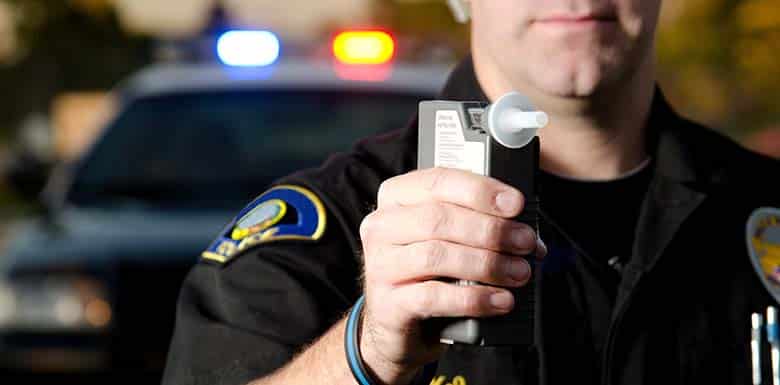
A lot depends on distinct circumstances when someone is charged with drunk driving. These include whether anyone was hurt or if you have prior DUI convictions on your record. But perhaps the most significant contributing factor regarding DUI charges in Pennsylvania is your level of impairment, illustrated by your BAC and typically determined by a DUI test.
However, the accuracy and reliability of such tests are far from ironclad. While no DUI test is perfect, including chemical blood, breath, and urine analysis, nowhere are the faults more apparent than with Standardized Field Sobriety Tests (SFTS), ARIDE, and DRE Protocols.
The Problem with Field Sobriety Tests in DUI Cases
The National Highway Traffic Safety Administration (NHTSA) has validated three standardized field sobriety tests to help determine if a driver is impaired:
-
Horizontal Gaze Nystagmus (HGN)
-
Walk-and-Turn
-
One-Leg Stand
These tests are considered “standardized” because they follow strict guidelines for administration and scoring. NHTSA even funded three major studies to validate them. But despite this, these tests are not infallible.
As a DUI defense attorney with certifications in SFST administration and advanced DUI trial skills, I can challenge the validity of these tests in court. When the tests are performed incorrectly—or the officer misinterprets the results—they often result in unfair DUI arrests. Demonstrating these flaws in court, particularly through cross-examination, can lead to reduced charges or even full dismissals.
Leveraging SFST Certification to Defend DUI Clients
Over the years, I’ve defended countless individuals charged with DUI in Pennsylvania and New Jersey. While some cases involved negotiating reduced penalties, others hinged on proving the arrest was based on faulty evidence.
That’s why I took the same SFST course required for law enforcement officers and earned the same certification they use to justify arrests in the field. This allows me to critically evaluate how DUI tests were performed and point out mistakes that may have affected the outcome.
Understanding how these tests should be administered—and how often they aren’t—allows defense attorneys like myself to challenge improper procedures and expose the weaknesses in the prosecution’s case.
Why Cross-Examination Is So Powerful
It is always helpful when a defense attorney points to procedural errors that may have influenced your arrest and charges. In an ideal scenario, your attorney can demonstrate mistakes to the prosecutor before going to court and negotiate an appropriate resolution. Regrettably, when dealing with a problem as ingrained as law enforcement using flawed tests to make DUI arrests, sometimes it takes impugning the officer’s understanding to make an impact.
Cross-examination presents a crucial opportunity for a defense attorney to challenge the arresting officer’s credibility and expose weaknesses in their case, including the incorrect administration of DUI testing. Regarding DUI field sobriety tests, my STFS training allows me to ask targeted questions that can potentially undermine the officer’s account.
Challenging Test Standardization in Court
By questioning the officer on the standardized procedures, a trained attorney can highlight any deviations or inconsistencies that may have influenced the test’s accuracy. For example, the NHTSA guidelines for the Horizontal Gaze Nystagmus test state that the stimulus should be approximately 12-15 inches from the suspect’s face. This distance is necessary to observe eye movements accurately. Additionally, the stimulus must be held slightly above the eyes and can only be moved at certain times as the test is conducted.
If the officer fails to maintain the correct distance or otherwise error when administering the test, it may alter the suspect’s eye movements, leading to a false indication of impairment. During cross-examination, a defense attorney with knowledge of these protocols can highlight deviations, cast doubt on the accuracy of the HGN test results, and weaken the prosecution’s case.
Examining Environmental Conditions
Even when a DUI test is administered correctly, the environment can still affect the results. SFSTs are ideally performed on a flat, well-lit, and unobstructed surface. But in reality, police often conduct these tests:
-
On uneven pavement
-
In poor lighting
-
During inclement weather
-
Near traffic or loud noise
All of these conditions can impact balance, coordination, and concentration—making someone appear impaired when they are not. As your defense attorney, I can question the officer about the test conditions and demonstrate how they may have skewed the results.
Highlighting the Officer’s Lack of Training
Another deficiency in field DUI testing that cross-examination can expose is the overall lax police training policies regarding Field Sobriety Tests. An attorney certified to administer the test has the luxury of that knowledge and the training manuals, which can be used during cross-examination to test the police officer’s memory and recall of the standardization methods required to administer the test properly.
If the officer administering the DUI test is lazy, lacks proper training, or fails to provide clear and accurate instructions, it can lead to misunderstandings or confusion. For instance, if an officer requests that you perform the One Leg Stand test but mistakenly gives you confusing or incorrect instructions, this can result in you not fully comprehending the expectations or requirements of the test, leading to potentially inaccurate results.
During cross-examination, your attorney can inquire about the officer’s training and the instructions provided. By revealing gaps in the officer’s training or insufficient instructions, you can cast doubt on the test results and underscore how defective procedures can lead to unwarranted DUI charges.
Medical Conditions Can Mimic Impairment
One of the biggest problems with Field Sobriety Tests is that they do not adequately accommodate certain medical conditions and illnesses. Some conditions, such as inner ear disorders, neurological disorders, or even certain medications, can cause symptoms that mimic impairment, like balance issues, diminished coordination, or slurred speech.
For instance, if you have a condition like vertigo or Parkinson’s disease, your balance and coordination may be compromised even when sober. However, suppose an officer fails to recognize these medical conditions or mistakenly attributes the symptoms to alcohol or drug impairment during a field sobriety test. In that case, it can result in an undeserved DUI.
To make matters worse than a sick person being unfairly arrested for DUI, disputing that a medical condition was confused with intoxication may require witness testimony and cross-examination. By questioning the officer about their interaction with you, they can raise questions about what you told them about your medical condition and whether they considered the possibility of a medical condition.
Even Police Know DUI Tests Are Flawed
As a criminal defense attorney with the same training in DUI field sobriety testing as Pennsylvania Law Enforcement, I can leverage my knowledge and insight to challenge the reliability and accuracy of these tests. By exposing administration flaws at any point in the process, including cross-examination, we can potentially compel police, prosecutors, and lawmakers to admit that too much weight is given to an improperly administered method of determining impairment.
Not long ago, I had the opportunity to cross-examine a Pennsylvania State Trooper in a DUI trial, where we explored many of the issues discussed in this article. By asking targeted questions and executing some of the strategies discussed, the Trooper admitted to improperly administering the field sobriety tests in my client’s case. And while my client secured the fair result they deserved, I anticipate many more courts will come to the same conclusion about inaccurate tests being the basis for life-altering charges like DUI.
Speak with a DUI Attorney Who Knows What to Look For
If you face a DUI in Pennsylvania or New Jersey and are seeking legal representation from an attorney well-versed and with advanced training in the complexities of field sobriety testing, I’d be happy to speak with you.
Call Fienman Defense today at (215) 839-9529 or contact us online or submit a request online for a free and confidential case evaluation.
About Attorney Michael H. Fienman
Attorney Michael H. Fienman represents clients in criminal and traffic matters throughout Pennsylvania and New Jersey. Mr. Fienman has completed the same DWI detection training as most law enforcement officers, and he holds a certificate in Standardized Field Sobriety Testing approved by the National Highway Traffic Safety Administration (NHTSA). Mr. Fienman has also completed an advanced DUI Trial Skills course covering ARIDE and DRE Protocols. As an experienced trial attorney, he is a zealous advocate known for relentlessly defending clients in state court, federal court, and before administrative agencies.
Attorney Fienman is licensed to practice before the Supreme Court of Pennsylvania, the Supreme Court of New Jersey, the US District Court for the District of New Jersey, and the US District Court for the Eastern District of Pennsylvania.
View All Blogs